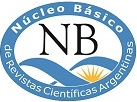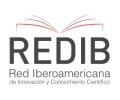Aprovechamiento de Residuos de la Industria Oleaginosa para la Recuperación de Ácidos Grasos Utilizando la Tecnología de Destilación Molecular
Keywords:
fatty acids, molecular distillation, waste, oilseedAbstract
The aim of this study is to determine the optimum operating variables for the recovery of free fatty acids in the distillate of vegetable oleins mixing soybean and sunflower, by molecular distillation process. The vegetable olein used as raw material comes from a mixture of wastes of the oil industry of soybean and sunflower, and the percentage of free fatty acids was determined around 70%. The operating variables manipulated in the molecular distillation were temperature and pressure of the distiller and the feed flow, whose experimental ranges were: temperature between 120 °C and 180 °C, pressure between 10 mtorr and 50 mtorr and flow between 1 ml/min and 3 ml/min. The experimental design adopted corresponds to a factorial design D-optimal and was adjusted to a quadratic mathematical model with the interaction of the operating variables. Percentage values of free fatty acids in the distillate did not present a significantly difference unlike the recovering fatty acids measure as a mass fraction of free fatty acids in the distillate in the total sample.

















